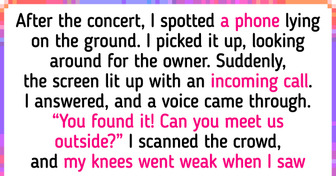12 Moments That Are Too Funny to Miss

Do you know that Leonardo da Vinci created a drawing of a mechanical robot in knight’s armor in 1495? According to the detailed plan, this knight could move and swing a sword thanks to an internal mechanical system consisting of ropes and gears. Whether Leonardo built this robot is unknown, but in 2002, one robotics engineer created this mechanical knight.
And do you know what the first real robot looked like? It wasn’t a person in a cardboard robot suit. It was a real machine powered by electricity. It looked like a large box with an arm sticking out of it — like a smaller version of a crane.
An inventor from Kentucky, George Devol, created it in the 1950s. He patented his invention and called it “Unimate.” The box with a mechanical arm was used in a TV show. The robot hit a golf ball into a cup, poured a drink into a mug, and impersonated a music band. People were delighted, but the invention didn’t bring George Devol money.
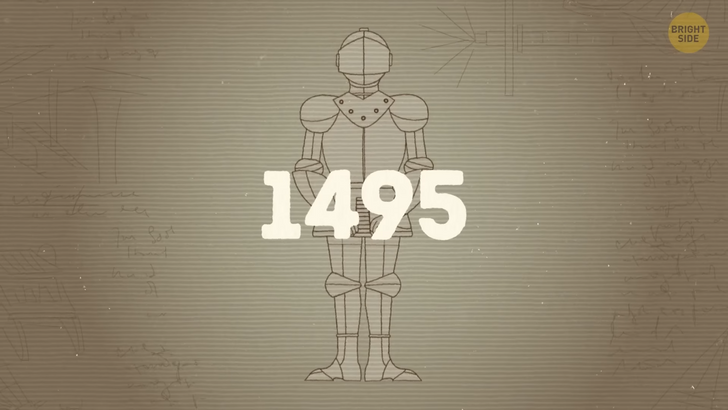
He had been trying to sell his product for ten years, but people didn’t want to buy it. Yeah, it was cool but pretty useless. But then, businessman and engineer Joseph Engelberger bought the patent for the machine. He managed to start large-scale sales of “Unimate” and founded the company Unimation, specializing in the production of robots.
Joseph Engelberger is called the father of robotics. He, along with George Devol, started building the future we have now. And now, we’ve got packaging robots and delivery robots, robots that help doctors perform complex surgeries and make diagnoses. Humanoid robots look creepy, but they try to behave like real humans. Cars that drive without drivers are also robots. And these are only physical machines. How many software programs live on websites and in your phone’s apps? There are millions of them! Robots process commands, maintain the functioning of search engines and chat with you if you are bored or need help.
And don’t forget about nanotechnology. Tiny robots, invisible to the unaided eye, are actively introduced into medicine. Perhaps, in the future, instead of pills, you will drink capsules with millions of robots that can cure your disease. Today, robots help people carry out rescue operations, conduct scientific research in laboratories, and descend to the depths of the sea. Robots explored the sunken Titanic and took thousands of photos of the ship.
Technologies are improving daily thanks to artificial intelligence, and it’s scary to imagine what might happen in the future. Every year, robots become more powerful and complex and infiltrate all areas of our lives. It seems that they might replace people in many areas, which could lead to a high unemployment rate. But don’t worry. The development of robotics will provide thousands of jobs. New robot models will require people servicing them. Also, infinitely improving robot software will require some serious programming skills.
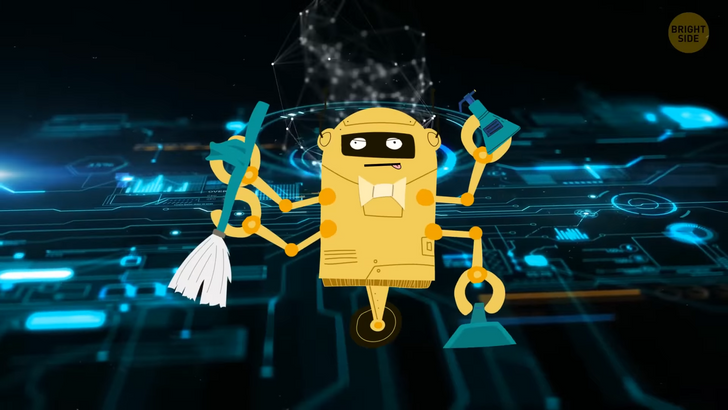
Some machines are already learning new professions. Many companies are looking for engineers to create new robot models. So, you will be able to find your place in the sun. But of course, there’s a danger that there will be more robot workers than people in the future. According to forecasts, people may lose 20 million jobs by 2030. So it’s time to get into IT professions.
You can see the impressive and rapid development of robots in medicine. And not because doctors are lazy or can’t do work properly. Medical robots can treat a patient if they are too far away to be taken to a hospital. Or imagine a doctor who has to do 100 surgeries in 24 hours. Of course, they won’t have the time and energy for this, so robots will help them.
People have developed a technology that will allow patients to get treatment remotely. Such technologies can save thousands of lives. Medical worker robots are necessary for disinfection. To get rid of dangerous bacteria in some rooms, doctors can send a robot that will sterilize the walls, floor, and ceiling with ultraviolet radiation. This will help prevent the spread of diseases.
The pressure in the ocean depths is too great for a human, but robots don’t care. They will descend to the bottom of the Atlantic Ocean and take a picture of a huge squid for you. For example, a robot called Orpheus can explore the ocean at a depth of up to 36,000 feet. This is more than the distance from the foot to the top of Mount Everest. With the help of such robots, scientists will be able to explore not only Earth but also other planets. We’ve got all the information we have about the Moon and Mars from robots. Easily withstanding cold and hot temperatures, they will one day walk on Saturn, Venus, and Jupiter.
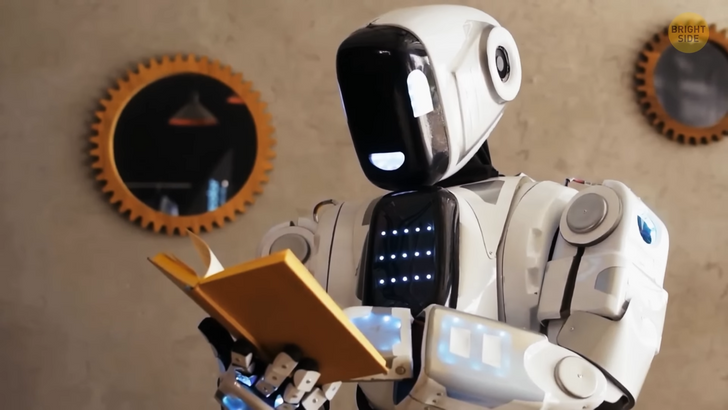
If extraterrestrial life exists, then most likely, robots will discover it. In the future, robots will become more and more like people, both externally and internally. There’s a new niche called soft robotics. Its engineers are working to recreate human movements in machines. They’re inspired by how muscles, bone tissue, and cartilage work. This is a very complex technology that engineers are trying to equip robots with. Elastic biological muscles can self-heal, develop, increase their strength, and react to environmental interactions. When robotics reaches this level, it will probably be a huge technological step for all humankind.
Robots will become our drivers, teachers, colleagues, and even friends. But of course, they will never be able to replace a real person. No matter how revolutionary the artificial intelligence achievements are, they will still not reach the power of the most complex supercomputer in the Universe — the human brain. Some people are sure that machines will outperform people mentally, but this will only affect computational and practical tasks.
People also have abstract thinking, intuition, emotions, aesthetic perception, and many other things robots can’t get. In the 90s, a computer defeated the reigning world champion in chess. Many people feared machines would outperform humans, but they were wrong. There is an infinite number of combinations of chess moves. The computer can calculate hundreds and thousands of moves ahead to defeat you. And, of course, a human brain can’t process such complex information.
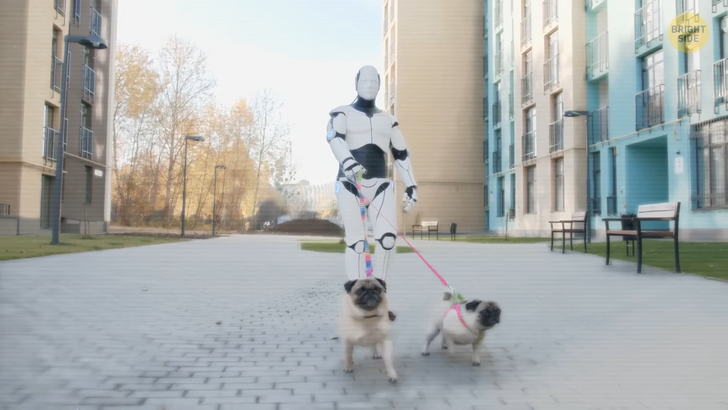
Yeah, the computer will try to defeat you as quickly as possible, but there will be no aesthetics in this. A human can win — but also make it impressive. They can humiliate the opponent or show an unexpected, creative, and beautiful move. A robot is not capable of such a thing. It’s too early to talk about the robot’s ability to understand aesthetics and contemplate beauty.
But let’s imagine the future of robotics in the next 50 years when robots will become more mobile and cheaper. Everyone has several personal robots. One washes your dishes, and the other helps you build a house. You go camping and take a mini robot equipped with an advanced navigation system with you. It will help you get out of the forest if you get lost or indicate which berries and mushrooms you can eat.
Are you late for work and don’t have time to walk your dog? No problem — one of your robots will do it for you. Have you overslept an important video conference? Don’t worry — a virtual robot with your avatar will replace you, and no one will notice the difference. Has your autopilot car broken down? Take a robot mechanic out of the trunk, and it will fix the engine. Robots can respond to touch. They simulate laughter if you tickle them and show fatigue after hard work. Robots learn sarcasm, but they are not good at it.
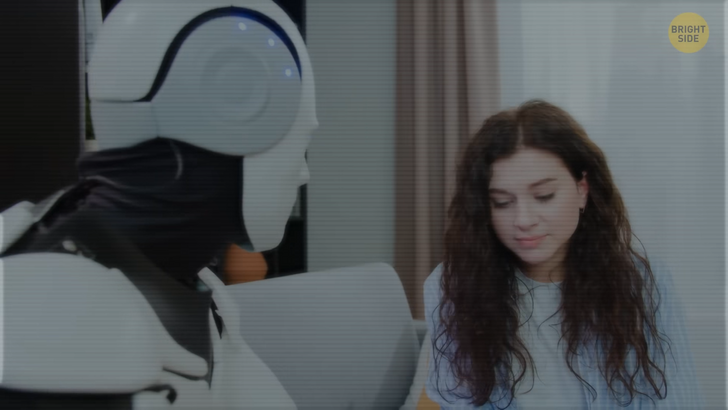
If your phone can read your face today, then in the future, robots will be able to read your emotions. Are you sad? The robot will say something inspiring to cheer you up. Are you angry? The robot will tell you a stupid joke.
All these technologies will significantly improve our lives, and this may become a big problem. Who will a person turn into if a robot does all the work for them? It can make us weaker. And if a robot replaces your friend, you can stop communicating with other people altogether. In general, robots are good, but humans are much better.











